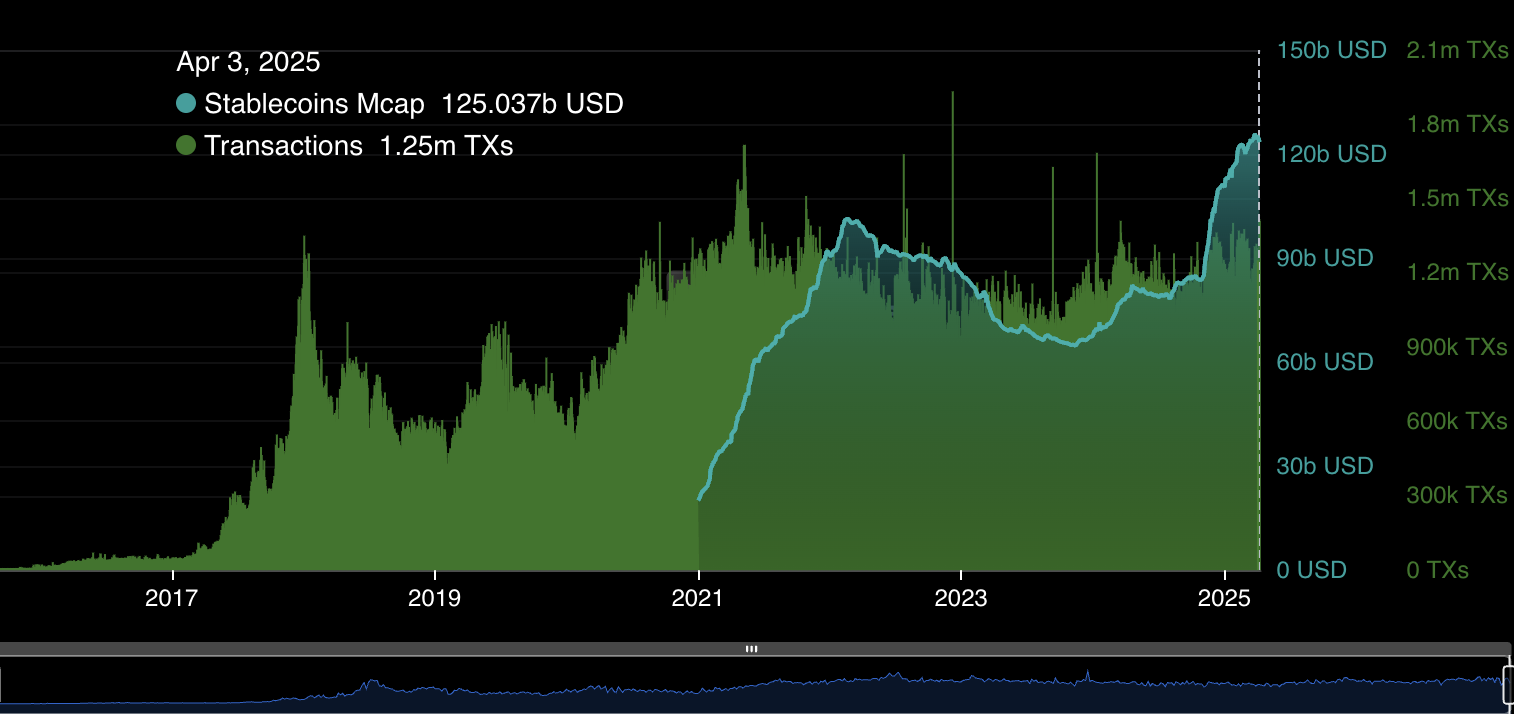
Bitcoin emerged as a solution to institutional failures, offering a decentralized alternative to traditional financial systems. Originally envisioned as a peer-to-peer electronic cash system, this concept was articulated in Satoshi Nakamoto’s white paper.
 Bitcoin
Bitcoin
Today, Bitcoin serves many roles including:
- A store of value
- Digital gold
- A macroeconomic asset
However, Bitcoin has strayed from its roots as a digital cash system due to its price volatility and scalability issues. In its stead, Ethereum embodies Bitcoin’s initial promise, facilitating use cases like stablecoins, which allow for seamless digital transactions free from bank dependencies.
The dominance of stablecoins like USDC and USDT illustrates Ethereum’s foundational role, conducting trillions in transactions across borders 24/7.
 Ethereum Statistics
Ethereum Statistics
Ethereum’s programmability supports a myriad of applications, enabling innovative financial products ranging from on-chain remittances to regulatory compliant asset issuance. As institutions like BlackRock and Franklin Templeton choose to innovate on Ethereum rather than Bitcoin, it highlights Ethereum’s potential as a global settlement layer for digital assets.
In conclusion, both Bitcoin and Ethereum play pivotal roles in the cryptocurrency ecosystem. While Bitcoin remains the benchmark for value, Ethereum is at the forefront of realizing a decentralized global financial system.


